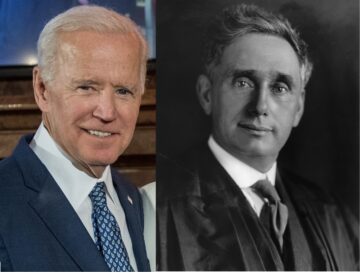by Jerry Cayford

Biden matters because he is taking on the real problems that are wrecking America, the deep structural problems, created over decades, that benefit powerful people who will do anything to prevent change (the way fossil fuel companies do anything to block climate solutions that hurt profits). He is the first president since LBJ to take on problems that big.
“How can that be?” you ask. “Joe Biden hasn’t transformed the Middle East into peaceful democracies like George W. Bush did. Nor has he ended racial and partisan animosity in America like Barack Obama did, or drained the swamp like Donald Trump did. What has Biden done?” He has taken on a challenge as big as his three predecessors’ ambitions: breaking corporate monopoly power and restoring healthy competition.
“Competition policy” is the innocuous name for this program. It’s big because it seeks to cure the root malady ailing America. Obviously, I was being sarcastic about the successes of Biden’s predecessors: they got nowhere on their signature ambitions, because they did not even try. Bush’s program for the Iraq transition was an arrogant experiment in free-market fantasy, uninterested in democracy. Obama announced in an apology letter to supporters after winning the nomination that he was not going to change our corrupt and toxic politics. (I wrote a Daily Kos piece about it in July 2008.) And Trump, as the very embodiment of the swamp, would no more drain the swamp than a bullfrog would. But Biden is serious. Read more »
